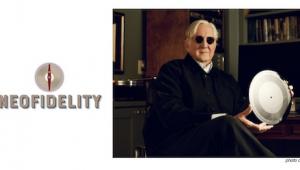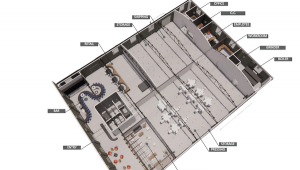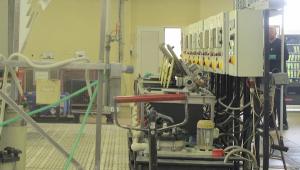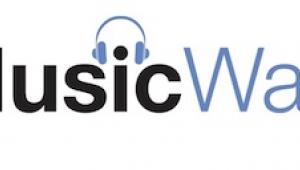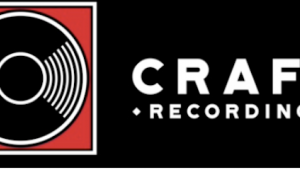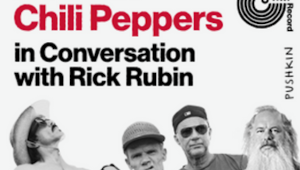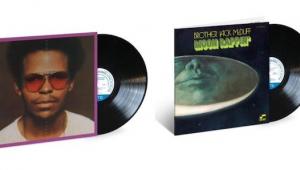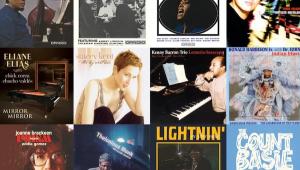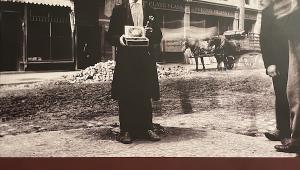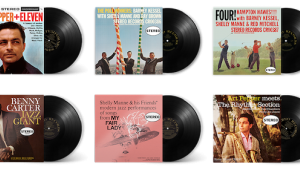"And we almost got away with it too! If it wasn't for you kids and your meddling blogger!" "scoooooobydooobeedoo!"
UMe Clarifies Sources Used For "Soundofvinyl" 1/2 Speed Mastered Series

Since Abbey Road does its half-speed mastering exclusively from digital sources, this opening line seemed problematic:
"Using the original analog master tapes this artisan process results in cuts that have superior high frequency response (treble) and very solid and stable stereo images. In short, a very high quality master that helps to create a very high quality record."
We sought clarification and received same yesterday from UMe's "Chas Chandler". He's obviously not the Chas Chandler, bassist for The Animals and Jimi Hendrix's manager since that one has passed away, so either this Chas Chandler coincidentally has the same name, or the individual had the good taste to go by that name.
Regardless, he was forthcoming regarding this issue, writing:
"In our haste to post information about the range, claims were made concerning analogue tapes that were erroneous and misleading and will shortly be corrected. Please accept my apologies. It is important to be completely transparent when marketing these titles. Audiophiles rightly require comprehensive information and "I hope you find the attached are helpful.
"Miles tells me that he is happy to talk to you if you would like further info. Please let me know."
Attached were mastering notes by Mr. Showell for each record in the series. The notes explained 1/2 speed mastering and its advantages as well as what he feels are the advantages of cutting from a high resolution source rather than from analog tape. That discussion is best left to cover in a review of one or more of the titles in the series. Here is the response to Mr. Chandler and Mr. Showell:
I appreciate all of that information and especially the acknowledgement of the unfortunate press release wording.
However, with regard to “Exile on Main Street”, the previous vinyl editions cut from a digital source supplied by The Rolling Stones were dreadful.
They were dynamically “squashed” and sonically a distant 10th place (at best) compared to the original, mastered at Artisan Sound. In my opinion a waste of PVC.
So before again buying, what my readers want to know is: was the “squashing” done in the original digital transfer or were the full dynamics preserved in the transfer that will hopefully lead to a better result.
Also, key to all of this is what A/D converters were used in the original transfers and what D/A converters were used for the lacquer mastering, as every digital converter has a signature sound (despite claims to the contrary), some better than others and some worse.
I also wonder why, given the success of The Beatles mono box cut directly from the master tapes instead of from digital, why Miles (or whoever is directing this program) feels this methodology will result in a superior record.
Finally, while Miles’ notes indicate the problems with cutting directly from tape and the advantages of using a digital source, there’s nothing there about the disadvantages of cutting from a digital file. Does he think digitization at 96/24 is transparent to the source?
We'll post the response when it is received.
- Log in or register to post comments



Funny.
The same explanation was made with the Peter Gabriel 1/2-speed master 45rpm vinyl (from digital masters). Yes, we were told they were going to be the sounding ever made. In reality, they're not good. Softer passages sound spacious and okay, but the low end has been lopped off, and dynamic passages are harsh and distorted.
These digital guys live in a distorted alternate reality.

The mono Beatles lp's sound amazing. Ive almost got them all. Much more natural sound than the remastered cd's, which I find a bit bright and edgy. I would love to buy Stones records done the same way.

that UMe even responded and so gracefully. That's a great series of follow up questions. I hope someone there might see that what is good for the Beatles is good for the Stones. Fans deserve more than good enough. So glad you are availing yourself to his offer and directly voicing our concerns and hopes.
Thanks

It's to my understanding that The Abkco Stones vinyl reissues sounds great (as do those CD's and Hi Rez downloads) even though they're cut from the Hi Rez files created in 2003. With that said, I guess that if it's done correctly, a 96/24 file might be transparent to the source tape? But, what's the point then, why not just keep it in the digital domain?
These people at UMe are just selling garbage to people that just don't know any better. They're such a-holes that one would think that they're involved in the current political arena! As for me, I refuse to buy any vinyl (except the new Bowie for an obvious reason) unless it's AAA. New or reissue.

Michael,
Actually an engineer from GZ mastering posted on the Steve Hoffman forum that Abkco supplied them with 24/192 PCM digital files for the box. I also seem to recall reading somewhere that those 2003 LPs mastered by Don Grossman that you originally wrote were the next best thing to Decca originals were also cut from PCM files.
It's as much if not more about mastering moves than the source being digital or analog (For instance, you didn't seem to mind that the Eagles box was cut from 24/192).
Perhaps this new Exile is cut from a transfer of whatever UK master tape was transferred to DSD for the Japanese SACD a few years back. If so and it's not squashed during mastering, then the LP should sound good indeed.

rather than 1/2 speed from digital if given the option"
I'm in total agreement with you there. Just got a copy of J.J. Cale and Eric Clapton "Road to Escondido" and have never been so disappointed in a purchase before. It's 1/2 speed mastered by Bob Ludwig, but it's been Pro Tooled to death. So much compression that there are no dynamics. It's just loud, and really has no need to be, especially for the type of music.
Didn't think 1/2 speed mastered would be from digital, so live and learn.

And I don't really understand the logic behind it myself, even though I have bought and will continue to buy titles that I know are mastered from 24/96 source files. At least for my own part, however, my justification (actually, the only reason) for buying "24/96" vinyl is that the only other way I can generally get that same title is from the equivalent CD (or 16/44.1 download). And in terms of how I sonically rate the same piece of music mastered by the same engineer, 24/96 rates at the top, vinyl comes second but the CD (or CD equivalent download) comes a dismal and very distant last. But the difference between the 24/96 and the vinyl is always amazingly and astonishingly small. Still, I would honestly rather be able to buy the 24/96 download than buy vinyl mastered from it. Mainly because although the sound is maybe only a few percent better at best, it obviously does not suffer any of vinyl's shortcomings. And it is usually - these days in my part of the world - significantly cheaper too.

By the way, I received my regular UK audio magazine today that makes mention of Mr. Showell's half speed work relating to the Queen LP reissues. He reportedly spent around 120 hours doing "de-essing" - but only the actual ends of each and every affected word and on the vocal tracks only. It would be completely impossible to achieve this in the analogue domain without significantly degrading the material. But by working only on the tiny sections and particular channel effected (at 24/192), the end result is (in my opinion) vastly superior and more listenable than a wholly analogue transfer. The benefits of the half speed mastering are the icing on the cake.

"Even if these problems could be overcome, the source tapes for this album are held in an archive in America. The days of shipping precious analogue masters over the Atlantic are long gone."
http://thesoundofvinyl.com/*/Abbey-Road-Studios/Exile-On-Main-Street/4ZB...

Thanks for the link to Showell's notes. He also writes:
"I can completely understand the reasons for the concerns that some people have when cutting classic albums from digital sources. Historically, there have been some horrible digital transfers used as a vinyl cutting source. This has absolutely not been the case with this series. Micro-management of the audio and attention to detail has been the order of the day."
We'll hear soon enough. The implicit acknowledgement that Exile reissues have been "horrible digital tansfers" is a start.

Firstly, what tape was the recent SHM SACD made from?
Then what is meant by best possible tape?
Then what happened to the tape Bob Ludwig used in 1994
Then I thought all the Stones masters were in that monster Paris facility. Stacks and boxes and boxes of tapes....
Then what about the Beatles, Doors, Music Matters jazz and other reissues?
Of course it can be done.

I don't know about the others, but the Beatles masters certainly never left Abbey Road.

"DSD transferred from analogue master tapes by Mick McKenna and Richard Whittaker at the FX Copyroom, 2011" This is as printed inside the jacket of the SHM SACD of Exile. These guys need to be contacted for clarification of what they used. The SHM comes in 2nd to the Artisan original UK pressing by quite a margin by my ears. The Pure Audio BluRay 24/96 isnt even in the same game.

If these guys did the transfer that would suggest a UK master tape was used. Maybe the master was returned to UK after mixing in which case Abbey Road could have got access to an analogue tape.

StonedBeatles1 said, "if it's done correctly, a 96/24 file might be transparent to the source tape? But, what's the point then, why not just keep it in the digital domain?"
This commentary has implications for Jon as well.
Two things to keep in mind:
1) The ADC matters, just ask the folks at Meridian (MQA ...) It's part of the reason reissues of reissues happen > digital keeps catching up with analog so to speak, yes? Today's 24-bit or DSD is tomorrow's not-that-great version, because it's a conversion.
2) You might not want to keep it in the digital domain if the other half of the equation, your DAC, isn't always improving. Just as with analog front ends there is room for improvement no matter what you have. Of course, the problem with "24/96 LPs" is your LP is really only as good as whatever DAC they used to make it. But there's a bigger problem with digital releases mentioned below.
"As for me, I refuse to buy any vinyl (except the new Bowie for an obvious reason) unless it's AAA"
Sorry, that makes little sense since you prefer the "LP experience." But if you need a better reason, know that dynamically compressing LPs is more technically difficult compared to doing it to digital realizes. With an LP, the engineer's choices here are usually either accepting a very night noise floor or having the stylus leap from the groove. Leaving music as higher dynamic range is actually easier. Doesn't seem intuitive.
LP releases, especially of pop material, regularly have more dynamic range than ANY digital release. Ask around online.





